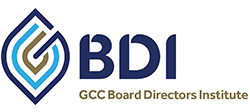
Dr. Waddah Ghanem is the executive director of EHSSQ & Corporate Affairs at the ENOC Group in Dubai. Waddah is responsible for overseeing the development and implementation of best practices and standards for EHS, business excellence and quality, sustainability, security and risk management. He also oversees the group’s legal affairs and communication strategy to support commercial growth and strategic positioning.
He has co-authored several technical and theological books and papers, including four books relating to Safety Management (2010), Reflective Learning (2014), Operational Excellence (2015); and The Opening of the Quran (2016).
Dr. Waddah, what are the hallmarks of an ethical work culture?
Firstly let us establish the difference between the code of business ethics in the work place and basic morality. Whilst morality is something which many people believe is universal, it is not always so. What is morally acceptable in one culture may be not in another.
However, when an organisation establishes a code of ethics, they establish a common code which all employees are expected to comply with. In doing so the organisation has this code which in turn makes the body demonstrate a certain reliability as a business partner, shareholder, stakeholder or employer when it comes to its relationships.
To that end, an ethical work culture starts with the establishment of a code of ethics that all employers and managers must understand and comply with both in letter and spirit.
Because an ethical workforce culture is a value proposition to the organisation’s internal and external stakeholders – the ethical code must effectively protect the interests of the organisation but at the same time effectively protect employees, suppliers and any other stakeholder.
What are the main benefits of cultivating an ethical work culture?
Organisational resilience and reliability are the key features of a sustainable business model. Organisations that don’t have an effective and fair HR policy, ineffective employee HSE and welfare systems, are often rife with nepotism, financial and administrative corruption and so on, and they will never thrive in a medium and long run.
It also operates with a high set of risks. Whilst it may be argued that some organisations in some parts of the world are successful and thrive in certain places, seldom do these organisations thrive for too long. Today such organisations also find it very difficult to operate in a more globalised market where certain minimum standards of business ethics are expected. Truly, with virtue comes wealth… in a more long-term sense.
Moreover, in an internal sense, an organisation’s workforce is definitely more engaged and effective as organisational stakeholders in an environment where people feel that they are being treated fairly, their customers are respected, the authorities they deal with are effectively supporting the organisation based on virtues and real merits and where they feel they work for an establishment which adds socio-economic value to their community. This is very important and is probably the single most significant benefit. When operating within a common code of business ethics, employees and other organisational stakeholders all feel they operate within a common system which provides fairness and justice.
How can companies ensure an ethical work culture successfully permeates all strands of the organisation?
You must establish a code of ethics. The code of ethics must be suitable and address the needs and nature of the organisation. I have worked with various businesses and can clearly see that in certain industries or certain types of businesses the level of tolerance as to what may be construed as an unethical business practice differs. This is a great concern, specifically for businesses that work in different market places with different types of customers – even in different jurisdictions. But the solution is simple:
- Establish the code of business ethics;
- Educate your employees and all stakeholders on the code of business ethics;
- Create a group that can offer support in answering questions when people are unsure on compliance issues;
- Develop a hotline and “whistle-blowing” policy which protects the whistle-blowers;
- Follow up and investigate cases which are brought forward to the organisation using external and independent investigators as and when needed;
- Create effective knowledge sharing and awareness events within the organisation;
- Allow employees to discuss and/or declare any potential conflicts of interest through a formalised process.
How can a company define what is ‘ethical’ and what is not?
Once again, what is ethical and what is morally correct are connected. They are however, from a corporate values perspective at times different. A corporate or company code of ethics is a set of standards of practice and conduct which an organisation expects of its employees, managers, contractors and suppliers. What is morally correct is more connected with a set of values more informed from a humanistic/religious perspective which is different for different individuals. We would hope that they don’t contradict and that there is some “pluralism” that exists between both. However, it could be argued that a code of ethics which abides by a strict religious code may not create inclusivity to employees who are of a different religious persuasion. This would create an issue as it would prevent inclusiveness. So a code of ethics is also very much more prescriptive set of expectations and performance standards which has more limited room for interpretation.
A company must define its code of business ethics based on a variety of considerations which include benchmarking with best practice standards in other organisations. It should explore the code of ethics also of its customers and key suppliers and develop the code in conjunction with industry practice and in consultation with the Board of Directors and the senior management team of an organisation.
How has ENOC worked with the BDI on director development issues?
ENOC has sent various executives to both public and in-house programmes. These programmes have promoted best practice in board and executive leadership which also encompasses managing difficult morally challenging and, at times, ethical issues when operating as an executive or an independent board director on a company or director of a Joint Venture (JV) board.
Through case study discussions, hypothetical yet very plausible examples, the executives in ENOC have had a chance to debate and discuss what would be ethical in their mind and benchmark that against different best practice codes of practice – this has created an excellent leadership development proposition that has positively impacted leadership performance within their organisations.



COMMENTS ARE OFF THIS POST